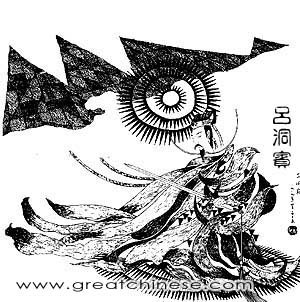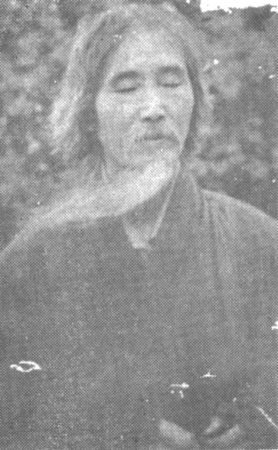 During the Song Dynasty (around the 12th century in China), Chan or Zen Buddhism separated into 2 distinct schools; the 'Koan-contemplating' school of Ven Da Hui and the 'Silent-illumination" school of Ven Hong Zhi. They developed into the Lin Ji (Rinzai) & Cao Dong (Soto) sects, which carried on until today. Da Hui's method focused on contemplating Koans at any time or place, whereas Hong Zhi's method focused on formal sitting meditation. This was no different from the Sudden & Gradual doctrine divide during the 6th Patriach Hui Neng's time; the question of sudden or gradual enlightenment resurfaced once more, 4 centuries after being resolved. Up till now the question has still not been fully resolved for Zen practitioners: to sit or not to sit?
During the Song Dynasty (around the 12th century in China), Chan or Zen Buddhism separated into 2 distinct schools; the 'Koan-contemplating' school of Ven Da Hui and the 'Silent-illumination" school of Ven Hong Zhi. They developed into the Lin Ji (Rinzai) & Cao Dong (Soto) sects, which carried on until today. Da Hui's method focused on contemplating Koans at any time or place, whereas Hong Zhi's method focused on formal sitting meditation. This was no different from the Sudden & Gradual doctrine divide during the 6th Patriach Hui Neng's time; the question of sudden or gradual enlightenment resurfaced once more, 4 centuries after being resolved. Up till now the question has still not been fully resolved for Zen practitioners: to sit or not to sit? To answer this question I believe it is best to go back to the 6th Patriach, who had this to say:
To answer this question I believe it is best to go back to the 6th Patriach, who had this to say:"To be born I sit & do not lie,
To die I lie down & do not sit;
A bunch of stinking bones,
Why give chores to it?"
What is Zuo Chan or Zazen? Za means to sit, but it is not the body that sits, but your mind.
Zen means to contemplate, but there is no fixed form or pattern to contemplate with.
Not to be moved inside the mind is Za.
Not to be attached to forms outside is Zen.
Not to separate your mind from the Buddha-nature is Za,
To be able to discriminate all phenomena is Zen.
Such being the nature of Zazen, what is the point of sitting around all day meditating when all you're doing is really thinking delusional thoughts? If you truly understood Zazen, then there is not a single moment you are not sat. If you do not understand Zazen, then you can sit until you become a corpse, yet still fail to get even a glimpse of your own true mind!
So should we sit or not? It all depends whether you grasp this crucial teaching.
Take heed, do not follow the wrong path!


